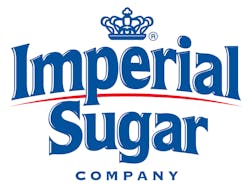Class Action Suit Seeks Damages From Imperial Sugar Co.
The law firm of Kessler Topaz Meltzer & Check, LLP filed a class action lawsuit in the United States District Court for the Southern District of Texas on behalf of purchasers of the securities of Imperial Sugar Co., who purchased or otherwise acquired Imperial Sugar securities between Dec. 29, 2010 and Aug. 5, 2011, inclusive. Members of the class may, not later than Oct. 31, 2011, move the court to serve as lead plaintiff of the class. A lead plaintiff is a representative party that acts on behalf of other class members in directing the litigation. In order to be appointed lead plaintiff, the court must determine that the class member's claim is typical of the claims of other class members, and that the class member will adequately represent the class. The ability to share in any recovery is not, however, affected by the decision of whether or not to serve as a lead plaintiff. Any member of the purported class may move the court to serve as lead plaintiff through counsel of their choice, or may choose to do nothing and remain an absent class member. Persons with questions concerning this notice can contact Kessler Topaz Meltzer & Check, LLP (Darren J. Check, Esq. or David M. Promisloff, Esq.) toll free at 1-888-299-7706 or 1-610-667-7706, or via e-mail at [email protected]. For additional information about this lawsuit, or to join the class action online, please visit http://www.ktmc.com/cases/imperial sugar.
The complaint charges Imperial Sugar and certain of its officers and directors with violations of the Securities Exchange Act of 1934. Imperial Sugar processes and markets refined sugar in the U.S., selling its product to food manufacturers, retail grocers and foodservice distributors. In February 2008, there was an industrial accident at Imperial Sugar's Port Wentworth, Ga. Prior to the accident, production at the Port Wentworth refinery accounted for about 60 percent of the company's capacity. Following the accident, production was suspended until 2009. In the summer of 2009, Imperial Sugar began limited bulk sugar production at the Port Wentworth refinery, with packaging production beginning there in the fall of 2009.
More specifically, the complaint alleges that the defendants failed to disclose and misrepresented the following material adverse facts which were known to defendants or recklessly disregarded by them: 1) that the Port Wentworth refinery was struggling with operating defects, resulting in elevated production costs; 2) that, due to a known but undisclosed lack of demand for the company's products, driven by the company's competitors offering lower-priced products, the company's sales volumes were declining; 3) that as a result of these factors, the company was experiencing a decline in its gross margins; 4) that the company lacked adequate internal and financial controls; and 5) that, as a result of the foregoing, the defendants' positive statements about the company's business operations and prospects lacked any reasonable basis at the time they were made.
On Aug. 5, 2011, the company shocked investors when, seemingly out of nowhere, it reported a quarterly loss of $16.1 million, or $1.35 per share. The company stated that higher raw sugar costs along with lower volumes reduced gross margins for the quarter. Throughout that day, the market learned that the company's industrial sales for the quarter had fallen by more than 40% from the same period the previous year, and that the Port Wentworth refinery had continued to experience operating defects, resulting in higher production costs. Further, investors learned that competition from low cost offerings by Mexican and other refiners had a material adverse effect on Imperial Sugar's gross margins and sales.
Following these revelations, shares of the company's stock plummeted $13.75 per share, or nearly 60 percent, to close on August 5, 2011 at $9.44 per share, on extremely heavy trading volume. Imperial Sugar shares continued to decline the next trading day, falling an additional $1.65 per share, or over 17 percent, to close on August 8, 2011 at $7.79 per share, also on heavy trading volume.
The plaintiff seeks to recover damages on behalf of class members and is represented by the law firm of Kessler Topaz Meltzer & Check, which prosecutes class actions in both state and federal courts throughout the country. For more information about Kessler Topaz Meltzer & Check, or for additional information about participating in this action, please visit www.ktmc.com.
